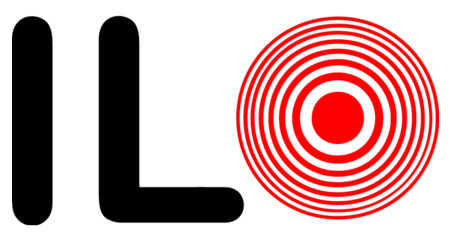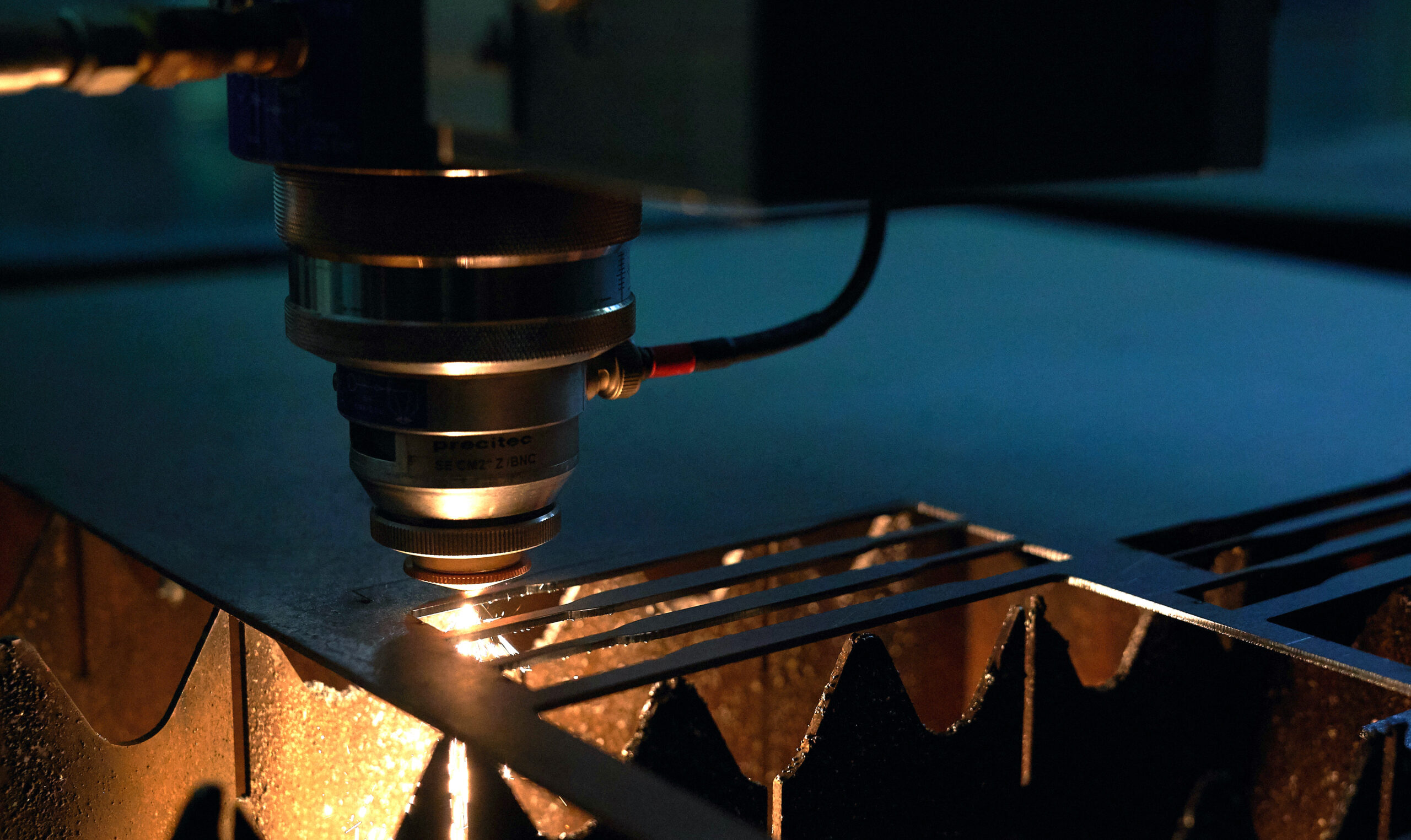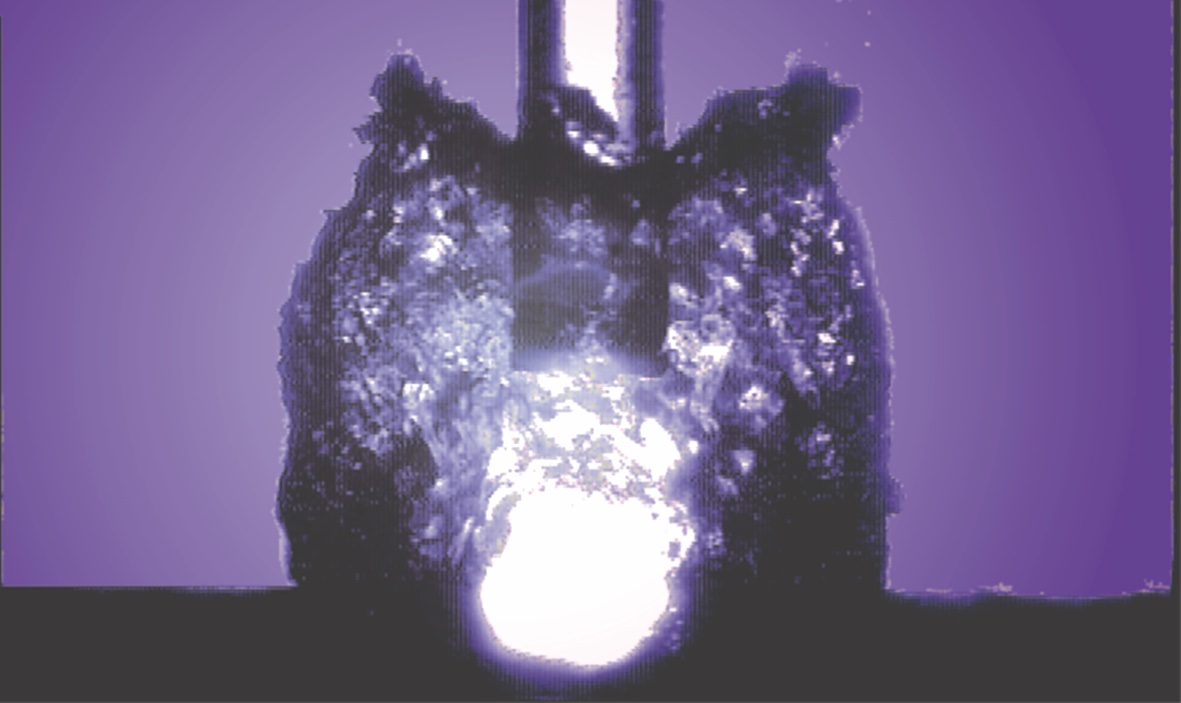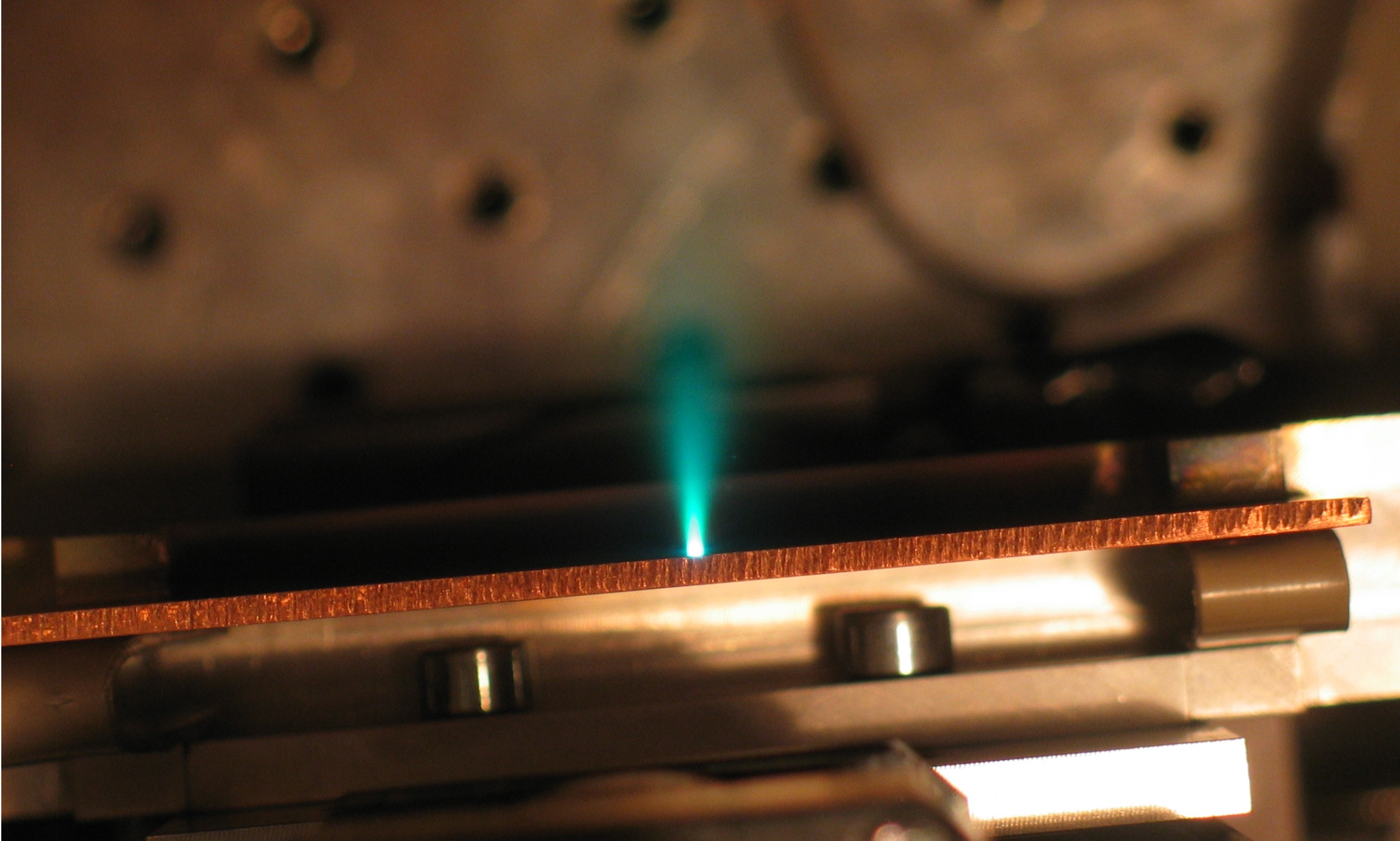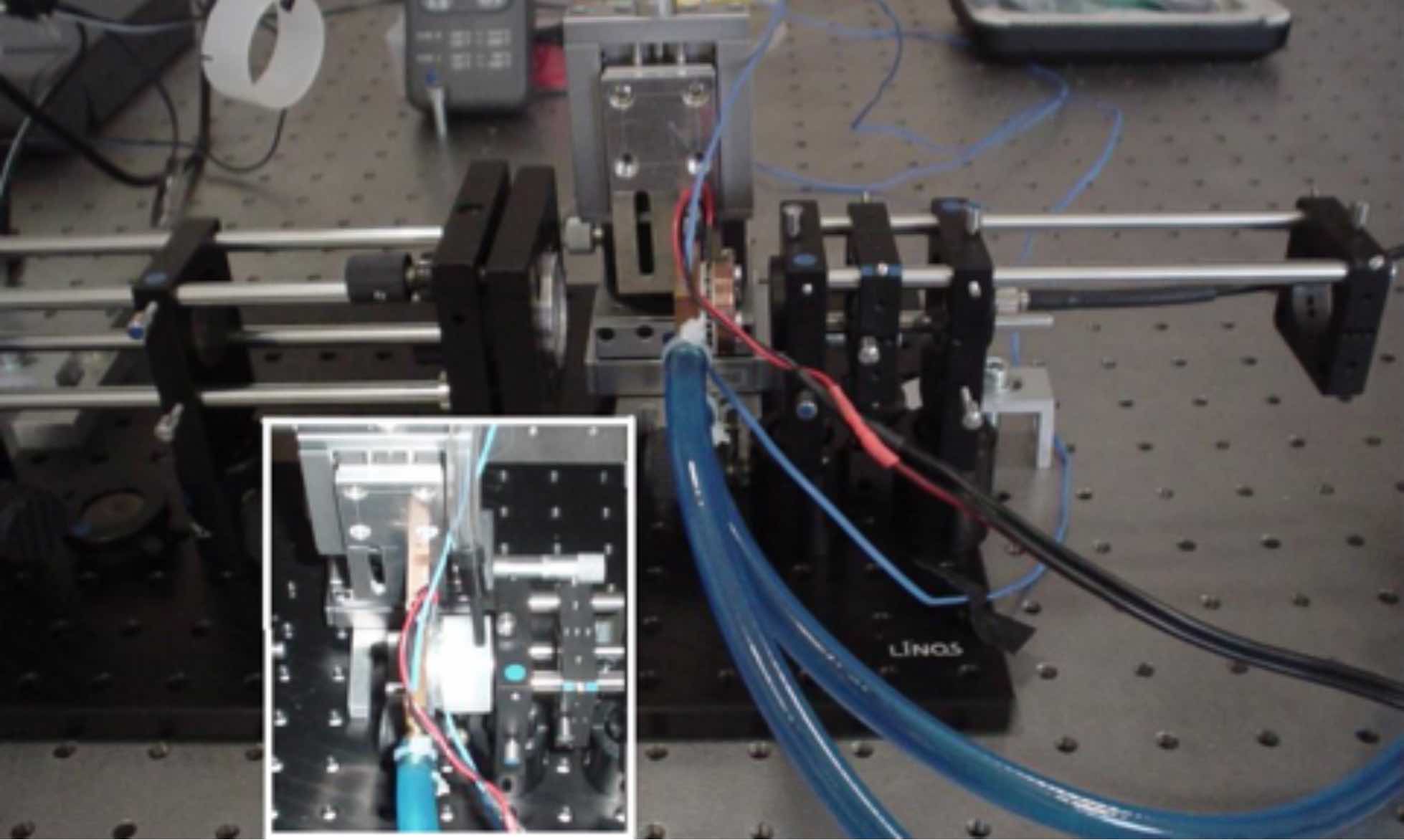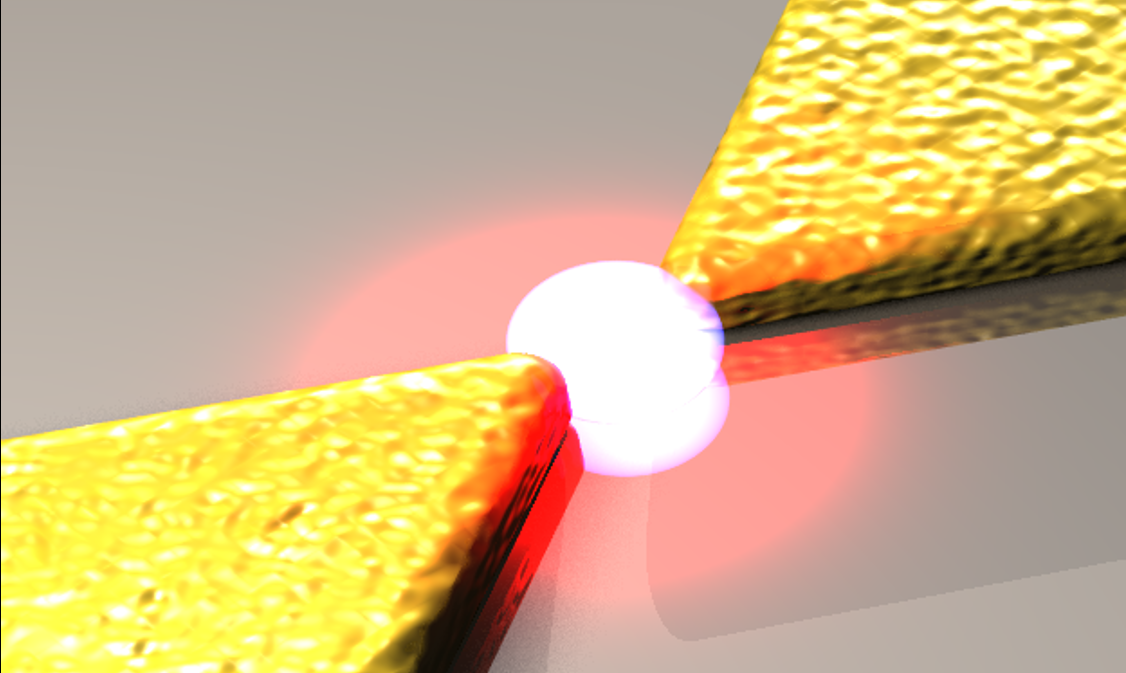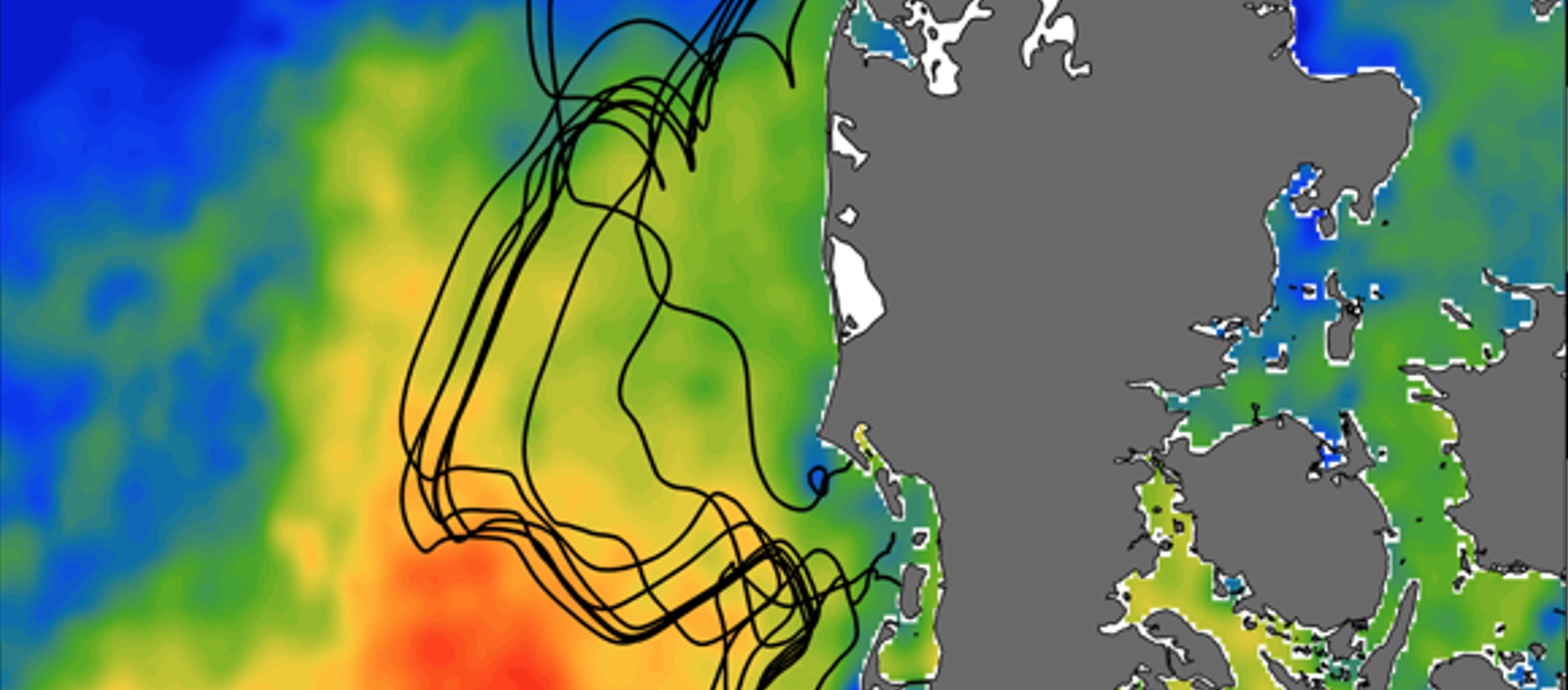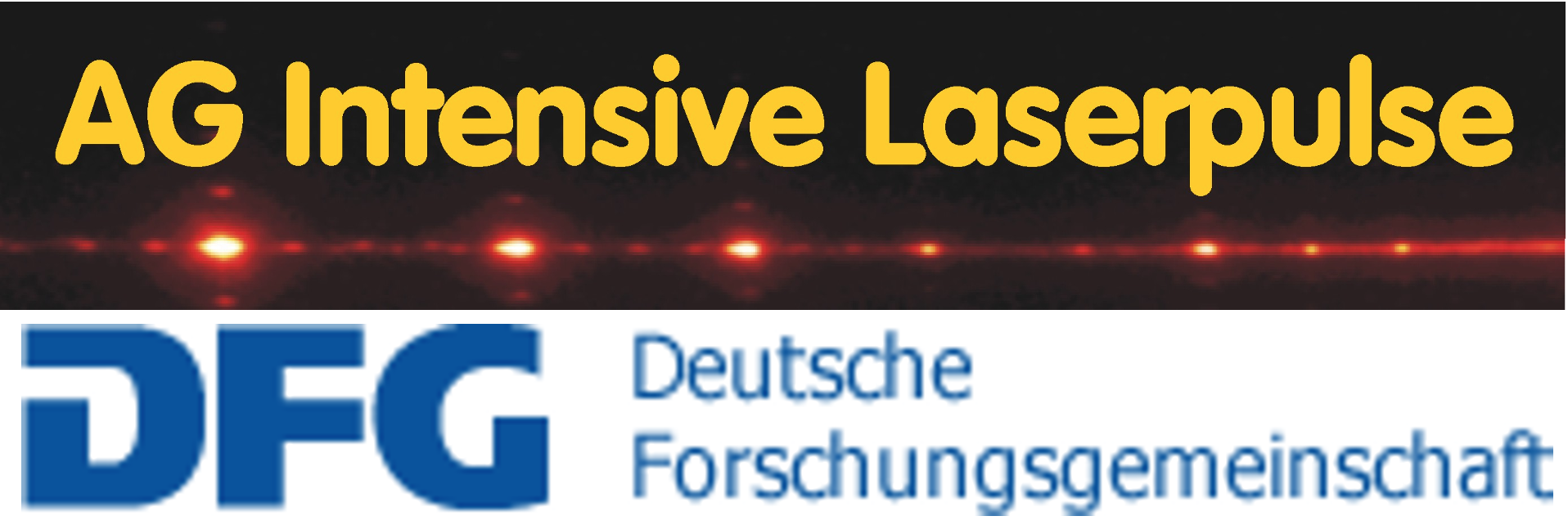Institute for
Lasers and Optics
Research
Have a look at the research topics at ILO
Teaching
Discover the broad range of lectures at ILO
Thesis and Projects
Find the ideal thesis topic or project
Engineering Physics
Bachelor and Master studies
Upcoming Events & News
Publication in Nature Communications
A collaboration of different research groups around the world led by Christoph Lienau’s group at the Carl von Ossietzky University in Oldenburg has now reported on ultrafast Rabi oscillations between a plasmon field in a metal grating and adjacent excitons in a thin J-Aggregate film.
Martin Silies‘ research group at the ILO in Emden was part of this collaboration and contributed in this work by the fabrication of nanometer-sized gratings and the simulation of the light-matter interaction using finite-difference time-domain methods.
Publication in NanoLetters
Very recently a collobarated work between the University of Oldenburg and the Hochschule Emden/Leer
about low-energetic electrons in the optical near field of thin metallic films was published in the highly-ranked journal NanoLetters.
More details can be found here.
Quantum cryptography
Prof. Dr. Martin Silies secures 250k€ for the Optimization of single photon sources for quantum cryptography in the project „tubLAN Q.0″ with TU Berlin, Uni Jena and Uni Oldenburg
Industrial Laser Material Processing
Cutting - Welding - Hardening - Large Scale Additive Manufacturing
Prof. Dr.-Ing. Thomas Schüning
Lasers in Medicine, Microscopy and Analytics
OCT Microscopy - LIBS - Medicine project - New analytics - Tissue removal - cancer - ...
Prof. Dr. rer. nat. Walter Neu
Intense Laser Pulses
Ultrashort Pulses - XUV & X-Rays - Micro Technology
Prof. Dr. rer. nat. habil. Ulrich Teubner
Optical Metrology
Optical sensors, sensor systems, spectroscopy, interferometry, holography, non-destructive testing.
Use photons for testing physical quantities.
Prof. Dr.-Ing. Philipp Huke
Optoelectronics
Light-matter interaction on a femtosecond time and nanometer spatial scale
Prof. Dr. rer. nat. Martin Silies
Engineering Physics
The Carl von Ossietzky University of Oldenburg and the University of Applied Sciences Emden/Leer offer an international bachelor's programme in Engineering Physics in order to fill the gap between traditional physics and engineering. Since 1998, students in this programme have acquired a comprehensive knowledge and understanding of mathematics and the natural sciences in combination with application oriented engineering, including the skills needed to further develop modern technologies. In laboratory projects, teams work through real world assignments. Many students complete their final project in a technology oriented business or an external research institute.
The students can specialize in one of three fields of Research to gain a high proficiency. You can find further information by browsing our website.
Highlights
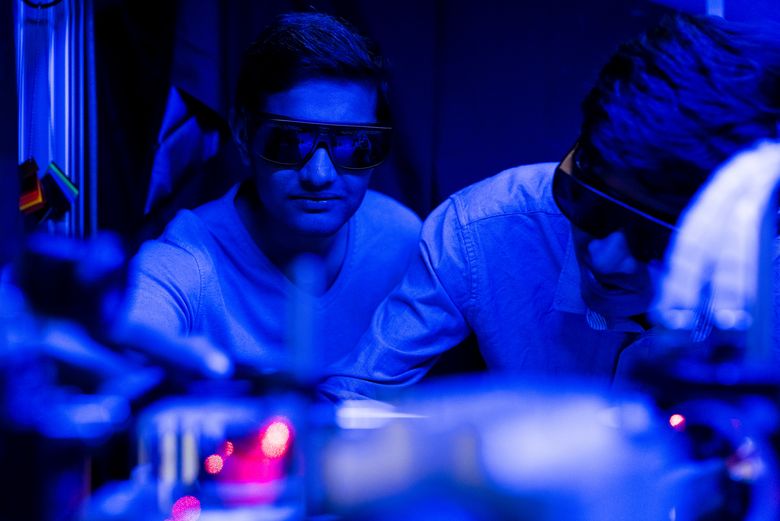
Quantum cryptography
In order to encrypt data and thus protect it from unauthorised access, there are numerous, mostly mathematically based methods that the IT industry can fall back on. Scientists from Emden/Leer University of Applied Sciences are now working together with researchers from TU Berlin and the Universities of Jena and Oldenburg on a novel research project in the field of quantum cryptography. The Federal Ministry of Education and Research is funding this with around 2.3 million euros. The Emden/Leer University of Applied Sciences will receive 250,000 euros for its own sub-project.
Producing and technically realising these new quantum light sources is one of the goals of the joint project „tubLAN Q.0“. The scientific and technical results lead to the overarching goal of the research network: a quantum-secured Q-LAN with end-to-end encryption. The sub-project at Emden/Leer University of Applied Sciences will optimise these single photon sources for quantum cryptography in cooperation with the University of Oldenburg and use them in a demonstrator experiment in cooperation with the TU Berlin.
Sailing Intelligent Micro Drifter Swarms
Small Lagrangian drifters are suited for investigating the temporal and spatial clustering and dispersion of water masses and particles at fronts and submesoscale filaments, which have previously been detected by satellite imagery. However, if such observations are to be repeated, the drifters have to be collected manually and deployed once more in a similar manner.
To overcome this limitation, an interdisciplinary approach is required that utilizes digitalization, automation, and artificial intelligence. The Project aims to address this issue by designing novel, intelligent, and small drifters that behave as a swarm by communicating with each otherd.
The drifters will be equipped with sensors for measuring pollutants, and relevant organic substances. Positioning of the drifters will be identified with high temporal and spatial resolution. The set-up of the drifters will also allow them to operate autonomously for up to several months, thus enabling them to detect and observe the spreading of pollutants.
Shock Waves at Microscale Projects
Although physics of shock waves and its applications is well investigated in the macroscopic regime (by means of macroscopic: shock tubes with a diameter larger than 1 mm up to much more than 1 m) this has not been true for the micro regime (tubes with a diameter below 1 mm down to 10 micron or less) until quite recently. Only a few years ago, first experiments with shock waves on micro scale led to the advent of a new field “Shock Waves At Microscales“. It has become clear that the theory that is applied for the macro regime, is not or only partly suitable for the micro regime. However, albeit the large interest in the community, performing experiments in that regime is rather difficult and thus the Intense Light Physics Group (ILP) of ILO in Emden is the only group world wide which is able to generate such micro shock waves in the smallest tubes directly. Within a project funded by the German Research Council (DFG; actual and previous funding), the ILP group carries out fundamental research in that new field. The acquired results will built an important physical fundament for applications in micro fluidics and nano technology and there will be applications in medical physics as well.
XUV-PUMA
This project covers the development and setup of a time diagnostics for the free-electron laser (FEL) FLASH, which is located at the DESY Campus in Hamburg.
Since 2005, ultra-short, intense XUV pulses have been generated at the world’s first FEL in the extreme ultraviolet (XUV) range. These can be used, for example, to „film“ chemical or biological reactions as well as extremely fast crystal structure changes or phase transitions on the femtosecond scale (10^-15 seconds). Even changes in the arrangement of individual atoms can be resolved spatially and temporally.
The research group has been working on the development of the so-called XUV-PUMA (pulse duration measuring apparatus for the extremely short XUV flashes). In addition basic research has also been part of the project. This includes, for example, research of ultrafast ionisation and especially the relevant transport effects (e.g. electron diffusion). Another issue is the investigation of the ultrafast evolution of the dielectric function during the interaction of FEL radiation with matter. In particular, these investigations will contribute to a deeper understanding of the interaction, especially the dynamics on the femtosecond time scale.
This Project has been funded by the BMBF #05K16ME1
The Physics School “Applied Photonics” 2021
The School covered advancing photonics research topics and driving applications of a key enabling technology in future technological innovation. A hands-on workshop in optical design software, comprehensive overviews of state-of-the-art scientific and industrial topics as active participation phases provided an ideal forum for advanced Bachelor, Master, and Ph.D. students to deepen their knowledge and foster interdisciplinary aspects. Participants were encouraged to present and discuss their research work in poster sessions throughout the school.
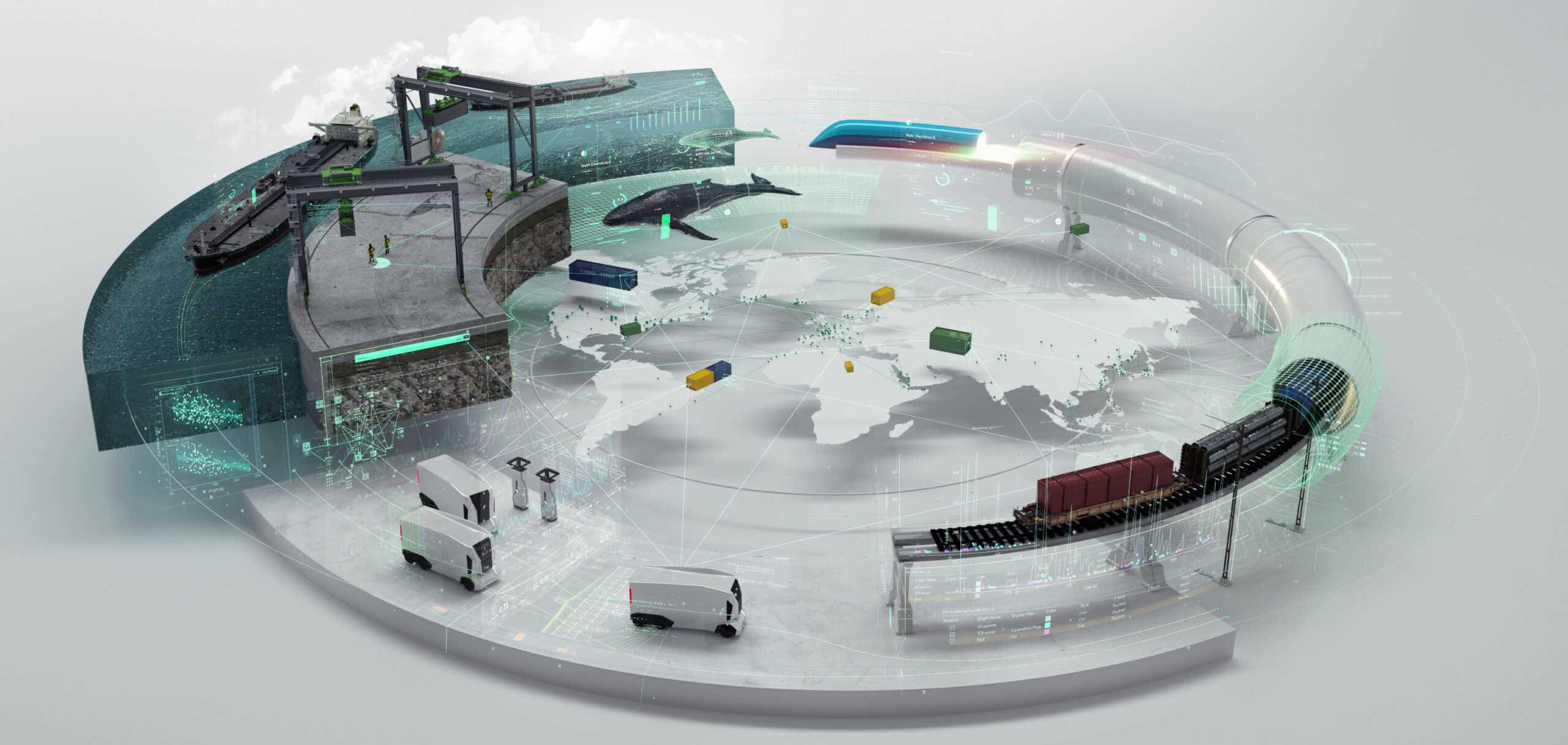
ePIcenter Project
Impact of new technologies and trade routes
The ePIcenter project is a large consortium of 36 partners representing leading ports, forwarders, cargo owners, logistics providers, knowledge institutes and technology firms. The partners will join forces to provide hands on solutions that turn global supply chain challenges caused by increasing length, complexity and vulnerability into opportunities.
International Vacuum Transport Research Seminar Winter Term 2021 / 2022
The University of Oldenburg and the University of Applied Sciences Emden/Leer are offering advanced research Modules for Bachelor and Master students. Part of those research modules is the “Vacuum Transport Research Seminar”.
The EuroTube Foundation (www.eurotube.org) and the universities are working on a large variety of research topics in the field of vacuum transport (e.g. Hyperloop) and related areas: magnetic levitation, cooling systems, safety systems, structural mechanics, fluid dynamics, power electronics, communication & control systems, mechatronic & performance research, laboratory demonstrators, transport applications and feasibility case studies. Together with the student team Swissloop (www.swissloop.ch) as the Host, the seminar “Vacuum Transport Technologies” will be held online with presentations from student research projects, as well as talks by industry experts.
